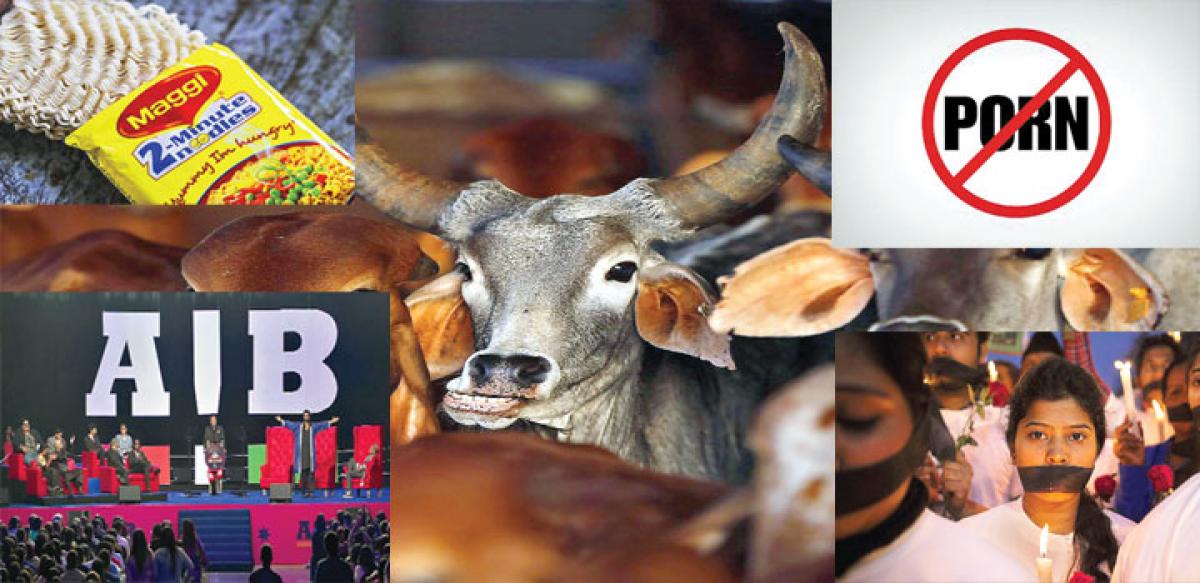Live
- Delhi Mayor poll: Cross-voting shows AAP councillors’ frustration, says Congress leader Jitender Kochar
- NIA files fresh charges against Mizoram-based arms trafficker
- From appeasement to 'New India' pitch: Nadda credits PM Modi for changing style of politics
- Bihar liquor ban gave rise to unauthorised trade, means ‘big money’ for officials: Patna HC
- COP29 Presidency launches initiative to address climate change, humanitarian needs
- Bangladesh's October foreign reserves fall below 20 billion USD
- CM Vijayan's top aide Sasi takes legal route in fight with MLA Anvar
- Dhirendra Shastri supports Yogi Adityanath's 'batenge to katenge' slogan
- Top 10 Most-Watched OTT Releases of the Week (Nov 4-10)
- Istanbul nabs over 240 illegal migrants
Just In

It has been a year of bans in India with the Government going all out in blocking everything; from beef to documentaries, as they left no stone unturned to uphold “the dignity of India”, restricting the Freedom of Expression. So, here is a not so definitive list of things banned this year...
It has been a year of bans in India with the Government going all out in blocking everything; from beef to documentaries, as they left no stone unturned to uphold “the dignity of India”, restricting the Freedom of Expression. So, here is a not so definitive list of things banned this year...

Govt’s beef with beef
The Maharashtra Government banned the sale and possession of beef in the state, under the Maharashtra Animal Preservation (amendment) Act (MAPA), 1995. While there was already a ban on the slaughter of cows, the Maharashtra government has gone a step further by putting a blanket ban on the slaughter of bulls, bullocks and calves too! The bigger issue was that anyone found guilty would be liable for a 5-year imprisonment.
Censor Board gave us a catalogue of Gaalis
A controversial list of cuss words that was circulated by the Central Board of Film Certification or CBFC after Pahlaj Nihalani took over as its chairperson has been withdrawn after a majority of members voted against it. But much before that the CBFC had asked the makers of 'Dum Laga Ke Haisha’ to mute the word “lesbian” and ensuring that four other words -- Ghanta, haramipana, haram ke pille and haramkhor -- would also not be heard by the audiences.

© 2024 Hyderabad Media House Limited/The Hans India. All rights reserved. Powered by hocalwire.com







